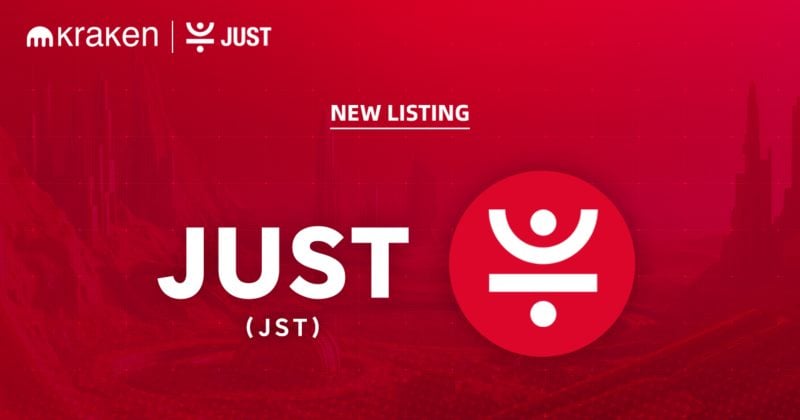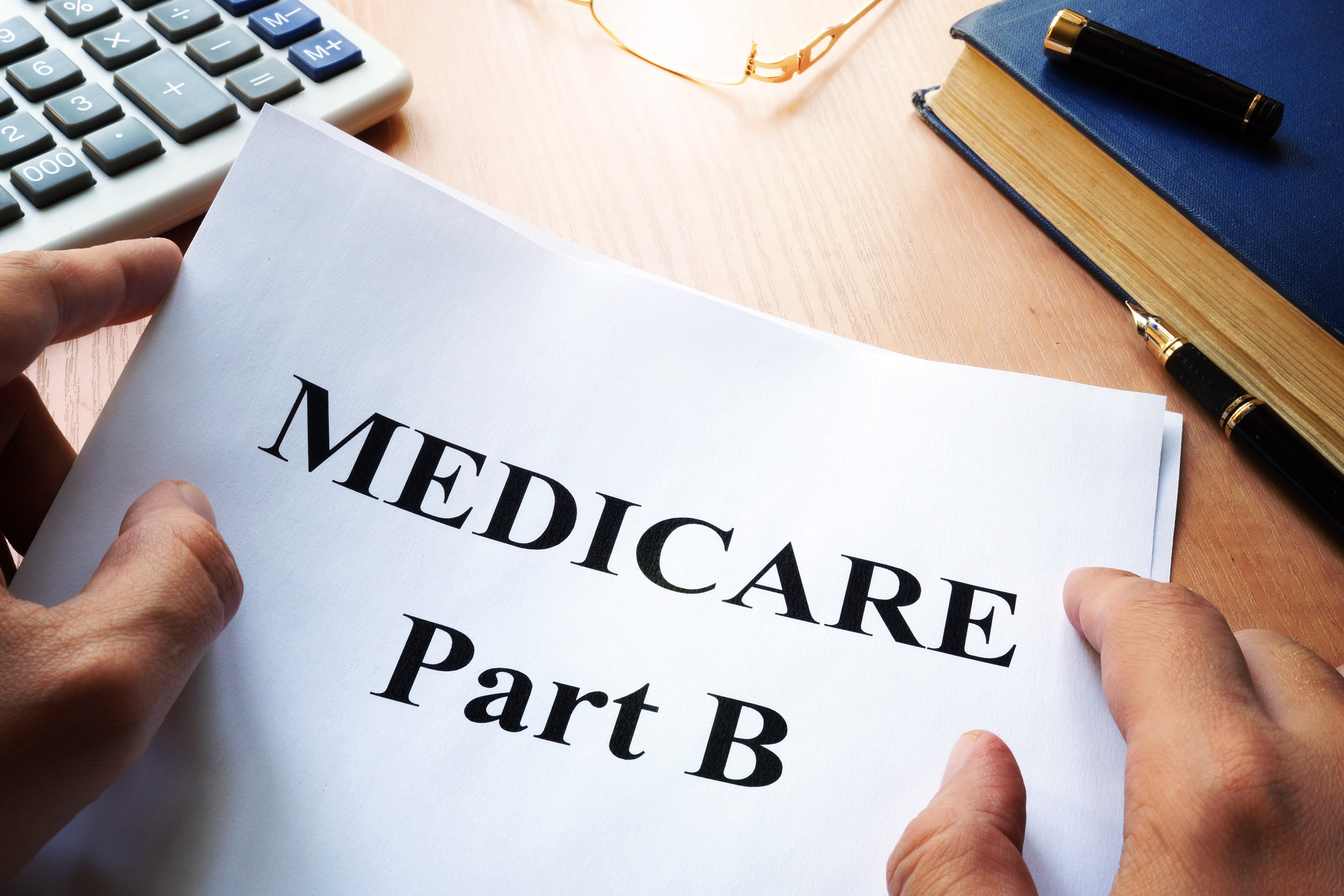The savings offers that appear on this site are from companies from which MoneyCrashers.com receives compensation. This compensation may impact how and where products appear on this site. MoneyCrashers.com does not include all savings companies or all savings offers available in the marketplace.
No investment or savings vehicle is entirely without risk, but certificates of deposit (CDs) offer more security and predictability than most.
With fixed or upwardly adjustable interest rates, terms ranging from as short as one month to as long as 10 years, and FDIC insurance up to $250,000 per account, CDs are useful tools for saving funds you don’t need right away — and earning a yield in the meantime.
Although prevailing rates vary widely by bank, CDs tend to have higher yields (better rates) than other types of bank accounts, including checking, savings, or money market accounts. That makes them great savings tools for people who don’t need to access their funds right away.
Best CD Rates
These are the best banks for certificate-of-deposit customers.
All offer above-average CD yields and each does at least one additional thing well, whether it’s allowing customers to take advantage of rising rates during the CD term or providing greater-than-usual flexibility around withdrawals. The best overall offers the best all-around value in our estimation.
All have fixed interest rates on CDs and reasonable minimum deposit requirements and most charge no monthly fees, as is sometimes the case for online savings accounts that allow unlimited withdrawals.
1. Barclays Bank
Minimum Deposit: $0
Maximum Yield: 4.00% APY (12 mo)
Withdrawal Penalty: Up to 180 days of interest
Our Rating: 4.4 / 5
Barclays Bank is an online savings bank that offers a legitimate rarity for savers: no minimum balance on CDs. Whereas many banks require opening deposits of $1,000 or more, you can open a Barclays CD and earn favorable interest rates with very little money down.
Needless to say, that makes Barclays Bank a frugal choice for CD customers without much to save right now. Plus, Barclays Bank CDs have no hidden monthly fees and compound interest daily, which slightly increases your return over the term.
Read our full Barclays Bank Review
Open an Account
2. Discover® Bank
Minimum Deposit: $0
Maximum Yield: 4.00% APY (as of April 1, 2025)
Withdrawal Penalty: Up to 24 months of interest
Our Rating: 4.3 / 5
Discover Bank features a wide range of CD terms with attractive yields. It’s particularly appealing if you’re seeking longer-term CDs, thanks to a roster that includes five-year, seven-year, and 10-year CDs.
Discover’s best yields come on its medium-term products, specifically the 12-month CD at the moment.
The biggest drawback is the stiff early withdrawal penalties (up to 24 months’ interest on longer-dated CDs).
Current CD Rates:
3-month: 2.00% APY
6-month: 3.70% APY
9-month: 3.80% APY
12-month: 4.00% APY
18-month: 3.80% APY
24-month: 3.80% APY
30-month: 3.50% APY
36-month: 3.50% APY
48-month: 3.50% APY
60-month: 3.50% APY
84-month: 3.50% APY
120-month: 3.50% APY
Read our Full Discover Bank Review
Open an Account
3. Western Alliance
Minimum Deposit: $1
Maximum Yield: 4.05%
Withdrawal Penalty: 90 days of interest
Our Rating: 4.8 / 5
Western Alliance is a top-ranking commercial bank but offers its high-yield CDs through Raisin. Western Alliance offers decent APY interest on CDs and requires a low opening deposit of $1 when going through the Raisin Platform.
Using the Raisin platform, you have 24/7 access to your account, and your funds are FDIC insured, so there’s no worry about losing your deposits.
You don’t have to worry about a hefty early withdrawal fee either, as they charge only 90 days of interest, but it’s best to choose the term you can leave the funds untouched. This makes it a great option for people just starting out or for anyone who has a small amount of money they can set aside, why not let it earn some impressive interest in the meantime?
Best CD Rates:
6-month: 3.75% APY
12-month: 3.00% APY
Open an Account
4. Synchrony Bank
Minimum Deposit: $0
Maximum Yield: 4.10% (9mo)
Withdrawal Penalty: Up to 365 days of interest
Our Rating: 4 / 5
Synchrony Bank has more CDs than many banks, offering terms from three months to five years. The short- to medium-term products are particularly impressive.
Also of Note: Synchrony has no minimum deposit requirement for CDs, making it a strong choice for younger and lower-asset savers.
However, watch the early withdrawal penalties, starting at 90 days for CDs with a 12-month or shorter term, but the penalties go up to 365 days for terms longer than four years.
Read our Full Synchrony Bank Review
Open an Account
5. EverBank (Formerly TIAA Bank)
Minimum Deposit: $1,000
Maximum Yield: 4.15%
Withdrawal Penalty: 25% of interest earned over the term
Our Rating: 4 / 5
EverBank, formerly TIAA Bank, offers excellent but not spectacular CD yields.
EverBank stands out for another reason too: its above-standard deposit insurance on a special type of CD known as a CDARS (Certificate of Deposit Account Registry Service).
While CDARS rates are typically a bit lower than corresponding CDs’, you can get deposit insurance many times higher than the standard FDIC limit of $250,000 per account, per institution (over $10 million, in some cases). If you have a lot of cash to store with EverBank, that’s a valuable perk.
Read our Full EverBank Review
Open an Account
6. Sallie Mae Bank
Minimum Deposit: $1
Maximum Yield: 4.10% APY
Withdrawal Penalty: Up to 180 days of interest
Our Rating: 4.2 / 5
Sallie Mae Bank has a multitude of terms available through their main site; however, we like to promote the ones available through the Raisin platform. There are CDs with standard terms, which are great for people with shorter-term goals but who want to earn some interest.
That’s short enough not to worry about tying up your money forever, and both have decent yields.
If you’re not sure what the future holds, consider a no-penalty CD from Sallie Mae Bank instead.
Best CD Rates:
6-month: 3.95% APY
12-month: 4.10% APY
Open an Account
7. Alliant Credit Union
Minimum Deposit: $1,000
Maximum Yield: 4.30% (6mo)
Withdrawal Penalty: Up to 180 days of interest
Our Rating: 4 / 5
Alliant Credit Union offers Certificates requiring only $1,000 deposited, or jumbo CDs that require $75,000 or higher deposits. Their terms run from 3 to 60 months, which is on par for many similar banks and credit unions.
Like most banks and credit unions, Alliant charges an early withdrawal penalty of 90 – 180 days, depending on the CD’s term.
In addition to traditional CDs, Alliant Credit Union offers Roth IRA and SEP IRA certificates to help you save for retirement.
Open an Account
8. Quontic Bank
Minimum Deposit: $500
Maximum Yield: 4.50% APY (3mo)
Withdrawal Penalty: Up to 2 years of interest
Our Rating: 4.3 / 5
Quontic Bank has some of the best rates available on CDs with terms under two years. The standout is the 3 month CD, which offers a 4.50% APY.
Quontic also shines thanks to an all-digital application that takes just a few minutes to complete and a relatively low minimum opening deposit, which makes its products accessible to savers without a lot of cash in the bank. However, keep the hefty early withdrawal penalties in mind, and don’t invest more than you can leave untouched.
Read our Full Quontic Bank Review
Open an Account
9. First Internet Bank
Minimum Deposit: $1,000
Maximum Yield: 4.42% APY (12mo)
Withdrawal Penalty: Up to 360 days of interest
Our Rating: 4.2 / 5
First Internet Bank, known simply as First IB, has some of the best shorter-term CD yields in the business. That makes it a great place to park your money for a year or less.
Rates on shortish CDs range from 3.72% APY on the three-month CD to 4.42% APY on the 12-month CD.
First IB has a lot of medium- to longer-term CDs as well, with competitive yields on all. The minimum deposit isn’t too bad at $1,000, and the early withdrawal penalty is middle-of-the-pack at up to 360 days’ interest.
Read our Full First Internet Bank Review
Open an Account
10. Ally Bank
Minimum Deposit: $0
Maximum Yield: 4.20% APY (9mo)
Withdrawal Penalty: Up to 150 days of interest
Our Rating: 4.3 / 5
Ally Bank offers very good yields on short- to medium-term regular CDs, particularly the 12-month and the 18-month CDs. It also offers special CDs with flexible features and top rates for their respective categories.
Ally also offers a no-penalty CD with a solid but not quite category-leading yield. Thanks to Ally’s customer-friendly early withdrawal penalties — no more than 150 days’ interest — and high yields on shorter-term products, the no-penalty CD’s value isn’t super-compelling.
But Ally’s no-minimum-deposit policy for regular and no-penalty CDs is compelling. It’s pretty rare in the CD world.
Read our Full Ally Bank Review
Open an Account
11. CIT Bank
Minimum Deposit: $1,000
Maximum Yield: 3.50% APY (13mo)
Withdrawal Penalty: Up to 12 months of interest
Our Rating: 4.4 / 5
CIT Bank has a handful of short-to-medium-term CDs with extremely good yields. They go as high as 3.50% APY on the 13-month CD.
Another standout is the No Penalty CD, which charges no fees for early principal withdrawals at any point during its 11-month term. The 11-month No Penalty CD also has a current yield of 3.50% APY.
One thing to watch out for: CIT Bank has several not-so-good CD rates, think 0.50% APY and below.
Read our full CIT Bank Review
Open an Account
12. U.S. Bank
Minimum Deposit: $1,000
Maximum Yield: 4.00% APY (5mo)
Withdrawal Penalty: Up to 50% of full-term interest or 3%, whichever is greater
Our Rating: 4.4 / 5
Grow your money with a Certificate of Deposit Account at U.S. Bank. You can earn more by locking in an exclusive rate.
The US Bank Special CD offers their most competitive promotional rates — up to 4.00%* and requires a minimum deposit of $1,000.
Choose the term length that works best for you. The rate is guaranteed for the full length of whatever term you choose.
As with all U.S. Bank CDs, these CD specials are FDIC-insured.
Open an Account
*Rates vary by state and zip code. Please click “Open an Account with U.S. Bank” above to see your rate before applying.
What is a CD?
A certificate of deposit is a timed deposit you make at a bank or credit union. You can find them at online banks, as well as your local brick-and-mortar banks. In exchange for the higher APYs they offer, you agree to leave your money in the account until maturity.
How CDs Work
CDs are a deposit product. You don’t have to worry about qualifying for one, as the only requirement is that you meet the minimum deposit requirements, which are as low as $1 at some banks.
When you choose a CD, you open the account at the bank either online or in person and make the deposit. This is a one-time deposit that you leave untouched until the CD matures. For example, if you invested $1,000 in a 12-month CD, you promise to leave that $1,000 untouched for 12 months. In exchange, you’ll earn the stated interest rate on the account.
When the CD matures, you usually have two options: withdraw the funds penalty-free or let the CD renew. You can also withdraw the funds and invest them in another CD if you find a better APY or need a different term.
Each bank offers different APYs for their CDs and often promotes a specific term, giving it the highest rate out of all the CD options.
Types of CDs
Here are the different types of CDs:
Traditional: These CDs pay a fixed interest rate for a fixed term. They often have an early withdrawal penalty and minimum deposit requirements.
No-penalty CD: The difference with a no-penalty CD is you can withdraw the funds early without paying a penalty. The yield is often lower on these to offer the option for early withdrawal.
Jumbo CD: You’ll typically need $100,000 or more to invest in a jumbo CD. Online banks offer this option at higher rates, but again, you must leave the funds untouched or pay a hefty penalty.
Bump-up CD: If rates increase while your money is invested in a CD, you can request a rate increase. This is usually a one-time option for these CDs.
Add-on CD: If you have more money you want to deposit to your CD, look for an add-on CD that allows you to make future deposits without the need to open another CD.
IRA CD: If you have a cash balance in your IRA account, you can grow it faster by investing it in a high-yield CD.
How to Choose the Best CD for You
Before investing in a CD, consider the factors that will help you choose the right type and term. You can determine this by asking yourself the following questions:
How much money do I have to invest?
How long can I keep the money untouched?
Will I need to make future deposits to the CD?
Am I comfortable locking in a rate for the chosen term, or do I want a bump-up option?
What is the early withdrawal penalty if I need the money sooner?
Knowing the answers to these questions, you can choose the right type of CD and then shop around for the best rates. As you see from our list above, the rates can vary drastically, and some banks offer promotional rates on specific terms.
Pros and Cons
There are pros and cons to consider when considering investing in a CD. Here’s what to consider.
Pros
Returns are guaranteedOffers a secure way to grow your moneyEasy to qualify for as long as you meet the minimum deposit requirementOffers higher interest rates than standard bank accounts without the risk of investment accounts
Cons
Limited liquidity Ties up your money unless you pay a prepayment penaltyRates may not keep pace with inflation during high inflationary periods
Alternatives to CDs
CDs aren’t your only option to grow your cash reserves. Here are some other options to consider.
CDs vs. Traditional Savings Accounts
If locking up your funds for a predetermined time worries you, a traditional savings account may provide more peace of mind. This works best when you can find a bank paying a high APY, but the odds are slim since most banks, especially national banks, pay very low APYs.
The positive of having a traditional savings account is you don’t pay a penalty for withdrawing funds. However, some banks may still limit your withdrawals to no more than six per cycle, even though it’s no longer a federal law.
CDs vs. HYSAs
If you don’t want to lock up your funds in a CD but want the higher APY, high-yield savings accounts may be a better option. You must be comfortable banking online because these banks are only online and often don’t have brick-and-mortar locations.
In exchange for this, you often can earn a much higher APY on your funds. The only downside is that making deposits, especially cash, can be a little time-consuming. Typically, you must deposit funds in a local account and then transfer them electronically to your HYSA.
CDs vs. MMAs
Money market accounts are another option for people who need more flexibility than a savings account allows. MMAs are a cross between a savings and a checking account. You get the higher APY of a high-yield savings account but have features like check writing and a linked debit card to use the funds as you wish. Some banks limit how many monthly withdrawals you can make, but you usually have more access to your funds than a CD allows.
CDs vs. Bonds
CDs are a deposit account, and bonds are an investment but the most conservative investment you can find. A bond is a loan to a government agency or, if you want to take more risk, a corporation.
Like CDs, bonds have a maturity date, and if you keep the bond for its entirety, you can earn its full potential. You can liquidate it if needed, but you may take a loss. There isn’t a predetermined penalty like CDs have; you are subject to the market rates when you sell.
Methodology
We use several key factors to evaluate banks offering high-yield CDs and select the best products for our users. Each relates in some way to the cost or accessibility of these CDs.
Yield (Interest Rate)
Every certificate of deposit pays interest. Prospective account holders just need to ask themselves whether the rate of return is worth tying up their money.
We believe it should be. That’s why we give preference to banks that pay above-average interest rates on their CD balances. But no matter how good a bank’s CD rates are, shorter-term CDs tend to have lower interest rates than longer-term CDs.
Term Options
A CD’s term is the length of time between the account opening date and the maturity date. That is the period between the account holder’s initial deposit and the day the bank must repay that deposit with interest.
CD term lengths can be as short as one month and as long as 10 years. All else being equal, we prefer banks that offer as wide a range of CD terms as possible to appeal to investors seeking short-, medium– and long-term places to park their funds.
Early Withdrawal Penalties
Most CDs charge early withdrawal penalties. These penalties apply if you withdraw part or all of your principal amount before the CD’s maturity date. Usually, you can withdraw interest without penalty.
Early withdrawal penalties are expressed as a percentage of interest accrued on the CD. On shorter-term CDs, they’re often equal to three months’ interest. On longer-term CDs, they can exceed six months’ interest. If you withdraw before you’ve accrued enough interest to cover the penalty, you may lose principal.
While recognizing that few banks waive early withdrawal penalties entirely, we prefer institutions that offer special no-penalty products for customers seeking greater flexibility.
Minimum Deposit Requirements
Most CDs require a minimum opening deposit. In some cases, this deposit is manageable for the average saver — say, $100 to $500. But some deposits can be stiff — upward of $2,500, straining lower-income savers’ ability to pony up.
All else being equal, we’re fans of banks with modest minimum deposit requirements.
Account Types (Taxable or Tax-Advantaged)
The default tax treatment for CDs is the same as for other interest-bearing accounts. Accrued interest is taxed as regular income, subject to IRS and state regulations.
Some banks offer special CD products that offer favorable tax treatment. Usually, these are individual retirement account CDs — most often Roth or traditional — that allow account holders to reduce or avoid taxation on eligible balances. We’re fans of banks that offer this option but encourage would-be account holders to consult their tax advisor for guidance.
Deposit Insurance
All of the CDs on this list come with the standard level of deposit insurance coverage: $250,000 per account type per institution.
That’s plenty for most account holders. However, higher-asset customers might need more — and some banks are happy to give it to them. We’re fans of institutions that use sometimes-creative methods to boost deposit insurance coverage and protect clients’ hard-earned funds.
Midterm Rate Increases
Traditionally, CD rates remained fixed for the entire term. Your interest rate on Day 1 was the same as on Day 364.
Today, that’s no longer the case. Most CDs still have fixed rates, but more and more are more flexible. Known as raise-your-rate or bump-rate CDs, they allow you to take advantage of rising interest rates by raising your rate at least once during the term.
Of course, they can’t help if rates fall during the CD term. But it’s nice that they give you the option, and we prefer banks that offer them.
FAQs
For people who tend to think of “music” when they hear the term CD, all this talk of rates and terms can be confusing. Peruse this list of frequently asked questions if you need to know more.
How Is Interest Calculated on CDs?
Depending on the issuing bank’s policy, banks may calculate CD interest on a daily, weekly, monthly, quarterly, or annual basis.
Usually, the default option is for accrued interest to roll over into the CD balance, allowing it to compound. However, banks generally allow you to have interest paid into another account — generating income before the CD matures.
How Much Is a CD Early Withdrawal Penalty?
The biggest drawback of CDs is that most banks charge a significant penalty if you withdraw part or all of your funds before the term ends. These penalties typically range from three to 12 months interest, depending on the length of the CD term and the policies of the issuing bank.
But some banks now offer special CDs that allow you to make midterm interest — and in some cases interest and principal — withdrawals without paying a penalty. These CDs are marketed as no-penalty or flexible CDs. If you want the option to access your funds before the end of the term, these are useful.
Can You Have More Than One CD With the Same Bank?
Yes. While every bank is different, you should expect to be allowed to open multiple CDs with the same institution.
That lets you take advantage of the relationship between CD term length and yield. You can open a short-term CD to park funds you might need soon-ish while committing a portion of your wealth to longer-term CDs that earn more interest.
What Are Some Common Certificate of Deposit Fees?
Besides the early withdrawal penalty, which only kicks in if you withdraw before the CD matures, you shouldn’t expect your CD to cost much. Few CDs charge annual fees or monthly maintenance fees, for example.
How are CDs Taxed?
CDs are taxed just like interest you’d earn on a bank account. They become a part of your ordinary income and are taxed at your current tax rate. Your bank will provide a 1099-INT to help you know how much interest you must claim.
How Can You Build a CD Ladder?
A CD ladder is a method that allows you to spread out your capital across several CD terms. This ensures you aren’t locking up your funds for the long term and potentially facing early withdrawal fees. It also allows you to take advantage of the different rates on various terms.
To build a CD ladder, divvy up your funds equally among the different terms. For example, if you want to invest in a 1, 2, 3, 4, and 5-year CD and have $5,000 to invest, you’d put $1,000 in each CD.
When the 1-year CD matures you can either withdraw the funds and use them, or reinvest them in a longer-term CD and continue letting the funds grow. The CD ladder gives you some flexibility so you always have liquid funds without paying a penalty.
Final Word
To narrow your CD options, consider factors like:
How long do you expect to (or can afford to) keep your money tied up
Whether you want to sacrifice flexibility (in terms of the ability to withdraw funds during the CD term) in exchange for a higher return on investment
How much you can afford to commit to your CD
Whether you expect rates to rise or fall during the CD term
For example, if you’re looking for a place to park your funds for a few months and don’t care about maximizing your return, you might choose a six-month CD with a low APY. If you’re building a CD ladder you expect to endure for the better part of a decade, load up on five-, seven-, and maybe even 10-year CDs.



























